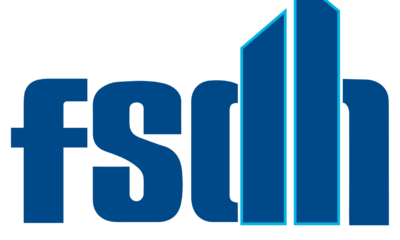The Naira closed strong in the parallel market but weakened further in the official foreign exchange (FX) market as seasonal demand continued to affect the currency despite the fresh sale of FX by the Central Bank of Nigeria (CBN).
In the parallel market, the Naira gained N5.17 against the greenback to close at N1,693.80 to the US Dollar compared to N1,698.97/$1 it closed on Monday.
However, the Nigerian Autonomous Foreign Exchange Market (NAFEX), which serves as the official foreign exchange market, showed the Naira recorded a 3.1 percent depreciation against the US Dollar to N1,653.02.
At the previous session on Monday, the Naira closed lower at N1,603.16/$1, indicating a further decrease of N49.86 at the approved market.
A turnover of $176.15 million was on record at the market, according to data from the FMDQ Securities Exchange Limited. This indicated a $183.07 million or 50.9 percent decline versus the $359.22 million quoted recently.
The Naira also gained in its value against the British Pound Sterling in the official market by N9.73 to sell at N2,203.51/£1 compared with the preceding session’s N2,213.24/£1 and followed the same pattern against the Euro as it appreciated N6.21 to quote at N1,839.08/€1 versus the previous day’s rate of N1,845.29/€1.
Meanwhile, the local currency depreciated 74 Kobo to close at N1,226.56 per Canadian Dollar, compared to Monday’s N1,225.82 per CAD.
At the official market, the Naira witnessed gains against the British Currency and the Euro in the Tuesday session.
On the Pound Sterling, the local currency made a gain of N16.54 to wrap the session at N2,137.36/£1 from N2,153.90/£1 that it sold at the previous session and against the Euro, the Nigerian currency closed at N1,780.26/€1 versus N1,791.06/€1, indicating an N10.80 appreciation.
The CBN has not injected fresh FX sales into the market for yet another week after it promised to always prop the market.
Speaking in the US on Tuesday at the ongoing International Monetary Fund (IMF)/World Bank summit, the Nigerian Minister of Finance, Mr Wale Edun noted that Nigeria needed to boost its oil production to fix its FX issues.
“The key about the foreign exchange market really is supply and as you know we are an oil-producing country, we just need to get our oil production up and that will deal with that issue of foreign exchange supply and pressure on foreign exchange anytime there are large flows.”

 Education4 weeks ago
Education4 weeks ago


 News3 weeks ago
News3 weeks ago




 Business3 weeks ago
Business3 weeks ago


 Technology3 weeks ago
Technology3 weeks ago


 Investment4 weeks ago
Investment4 weeks ago
 Investment3 weeks ago
Investment3 weeks ago
 Telecommunications4 weeks ago
Telecommunications4 weeks ago


 Banking Sector3 weeks ago
Banking Sector3 weeks ago


















